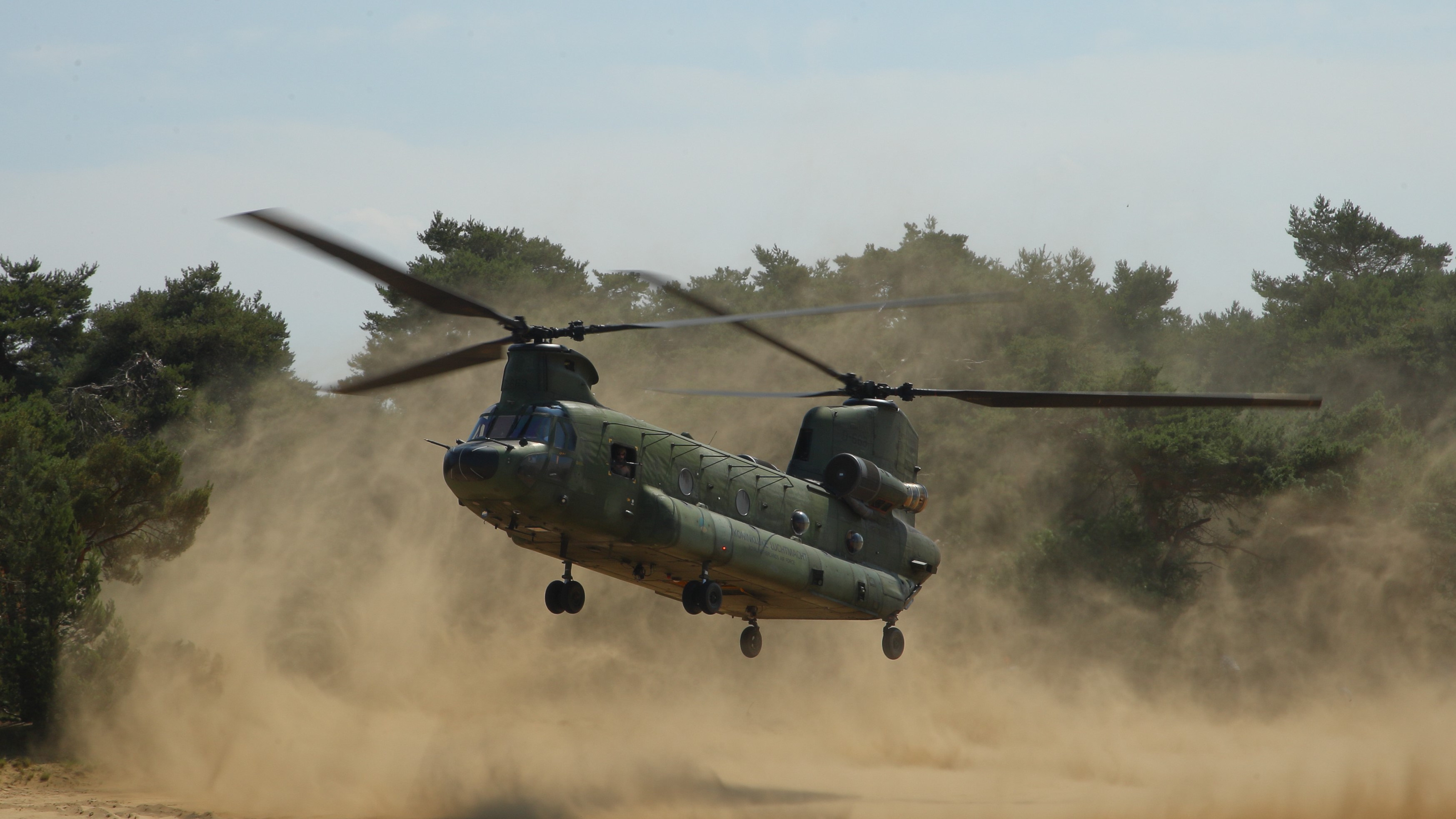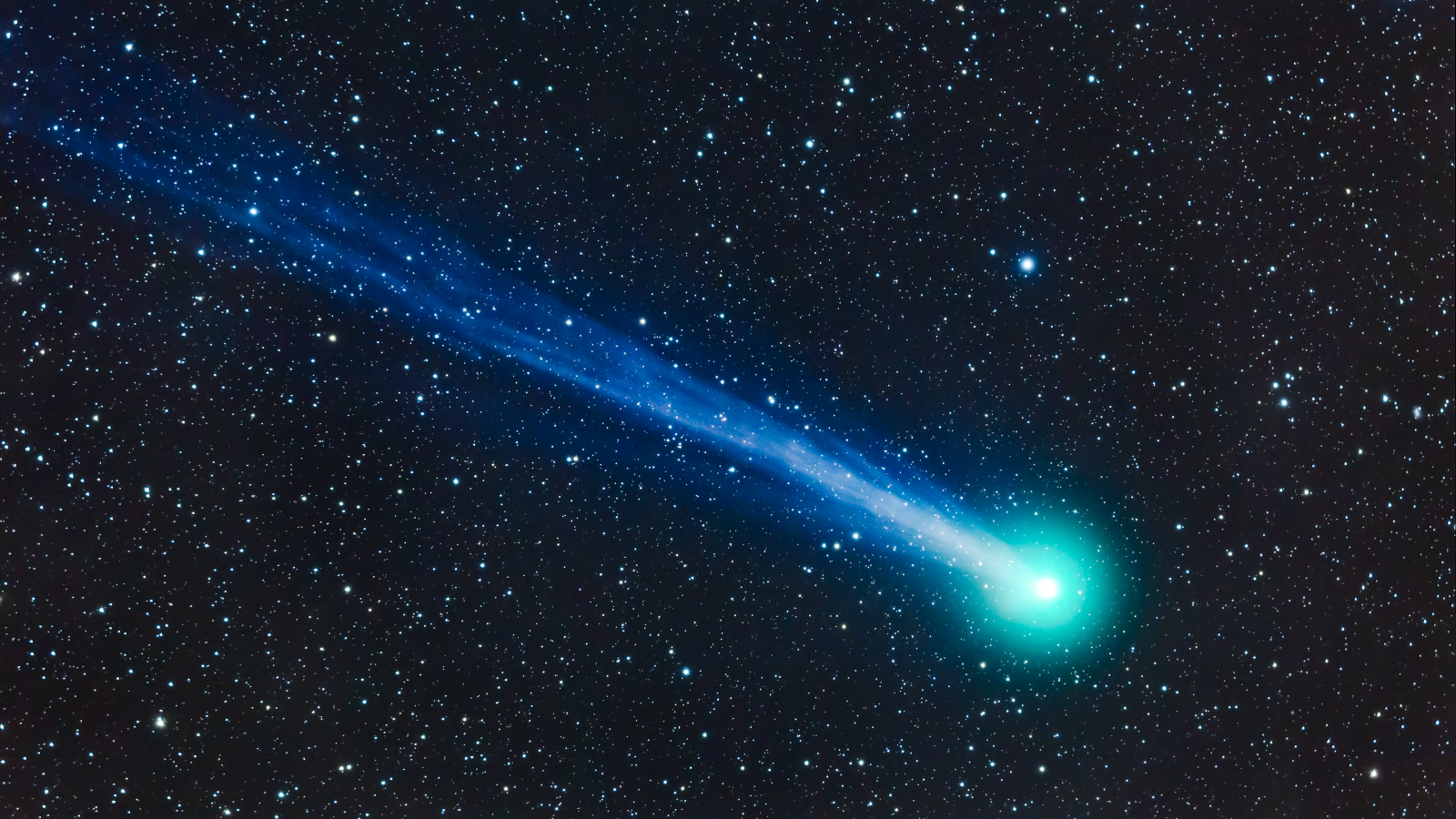'They mated like mad': Low-flying helicopter sparks massive crocodile orgy in Australia
A Chinook helicopter flying above a crocodile farm in Queensland appears to have set off a huge sexy frenzy, with the crocs mistaking the noise and vibrations as a signal it was time to make babies.
Get the world’s most fascinating discoveries delivered straight to your inbox.
You are now subscribed
Your newsletter sign-up was successful
Want to add more newsletters?

Delivered Daily
Daily Newsletter
Sign up for the latest discoveries, groundbreaking research and fascinating breakthroughs that impact you and the wider world direct to your inbox.

Once a week
Life's Little Mysteries
Feed your curiosity with an exclusive mystery every week, solved with science and delivered direct to your inbox before it's seen anywhere else.

Once a week
How It Works
Sign up to our free science & technology newsletter for your weekly fix of fascinating articles, quick quizzes, amazing images, and more

Delivered daily
Space.com Newsletter
Breaking space news, the latest updates on rocket launches, skywatching events and more!

Once a month
Watch This Space
Sign up to our monthly entertainment newsletter to keep up with all our coverage of the latest sci-fi and space movies, tv shows, games and books.

Once a week
Night Sky This Week
Discover this week's must-see night sky events, moon phases, and stunning astrophotos. Sign up for our skywatching newsletter and explore the universe with us!
Join the club
Get full access to premium articles, exclusive features and a growing list of member rewards.
A large-scale saltwater crocodile mating frenzy was recently triggered by an unlikely suspect in Australia — a low-flying Chinook helicopter. Ranchers from the Koorana Crocodile Farm in Queensland, which is home to over 3,000 crocodiles, said their scaly residents became aroused after the flyby and "mated like mad."
John Lever, owner of the farm, told ABC that the Chinook pilots use his farm as a marker point to change course mid-flight, with one pilot recently coming especially low so the people on board could snap a few photos of the crocs.
"All of the big males got up and roared and bellowed up at the sky, and then after the helicopters left they mated like mad," Lever said. "There's something about the sonic waves that really gets them stirred up."
So what is it about low-flying helicopters that gets crocs in the mood? Herpetologist Mark O'Shea from the University of Wolverhampton in the U.K., told Live Science there are a few reasons why a helicopter might spark a crocodile sex frenzy.
Related: World's largest captive croc turns 120, giving scientists 'serious knowledge on longevity'
One reason may be tied to helicopters simulating many of the warning signs of an incoming thunderstorm.

Heavy rains are known to have an aphrodisiac effect on many species of crocodilians. And saltwater crocodiles (Crocodylus porosus) appear to time mating so new hatchlings do not drown in flood water after heavy rains and storms, O'shea said. They mate during thunderstorms so offspring are more likely to hatch in more moderate conditions.
Get the world’s most fascinating discoveries delivered straight to your inbox.
"Usually, mating is a seasonal thing because [crocodiles] want to coincide with the best time to lay their eggs in a burrow or nest," O'Shea said.
Warm and wet weather usually triggers mating behaviors, and October is just about the right time for crocodile romance in Northern Australia, where Lever's crocodile farm is located.
But the low-flying helicopters' rotors may produce the same signals that tell crocodiles a storm is close.
Crocodiles have multi-sensory organs called integumentary sensory organs (ISOs) that are used to detect changes, such as movements in the water, atmospheric pressure and sounds at extremely low frequencies.
"I imagine that the downdraft from a large, heavy helicopter would create a change in pressure that the ISOs on crocodile skin can detect," O'Shea said. "Dropping barometric pressure from a downdraft may resemble the change in pressure from a storm.
Another potential explanation, O’Shea says, is that the Chinooks could be producing infrasound – sounds so low in frequency that they are undetectable to the human ear. Such vibrations can also be picked up by ISOs.
“Chinooks may artificially recreate the sound of the start of a thunderstorm,” he said.
Such vibrations play an important function in crocodilian communication, O'Shea said. The sound of a Chinook's powerful rotors may resemble the sound of competing crocodilian males, such as the low bellowing sounds of males looking for a mate, or the sound of males slapping the water with their jaws — another territorial and courting behavior.
So, is a Chinook helicopter all it takes to get crocodiles in the mood? O'Shea says he is not so sure. Crocodiles may need to already be picking up subtle cues, like changes in temperature, that signal their traditional mating season is about to start in order to be swayed by the large aircraft.
Editor's note: The original image on this article was of American alligators (Alligator mississippiensis). The image has been updated to show a saltwater crocodile.

Jacklin Kwan is a freelance journalist based in the United Kingdom who primarily covers science and technology stories. She graduated with a master's degree in physics from the University of Manchester, and received a Gold-Standard NCTJ diploma in Multimedia Journalism in 2021. Jacklin has written for Wired UK, Current Affairs and Science for the People.
 Live Science Plus
Live Science Plus











